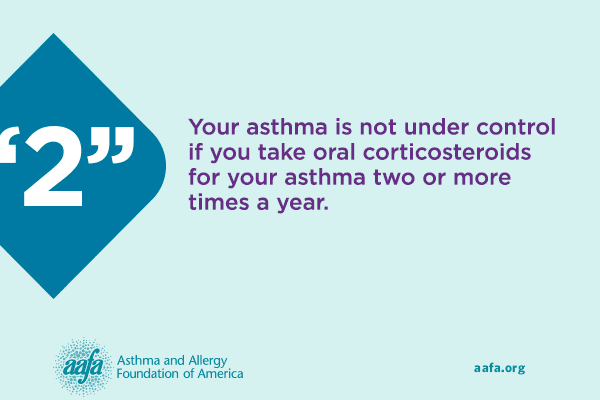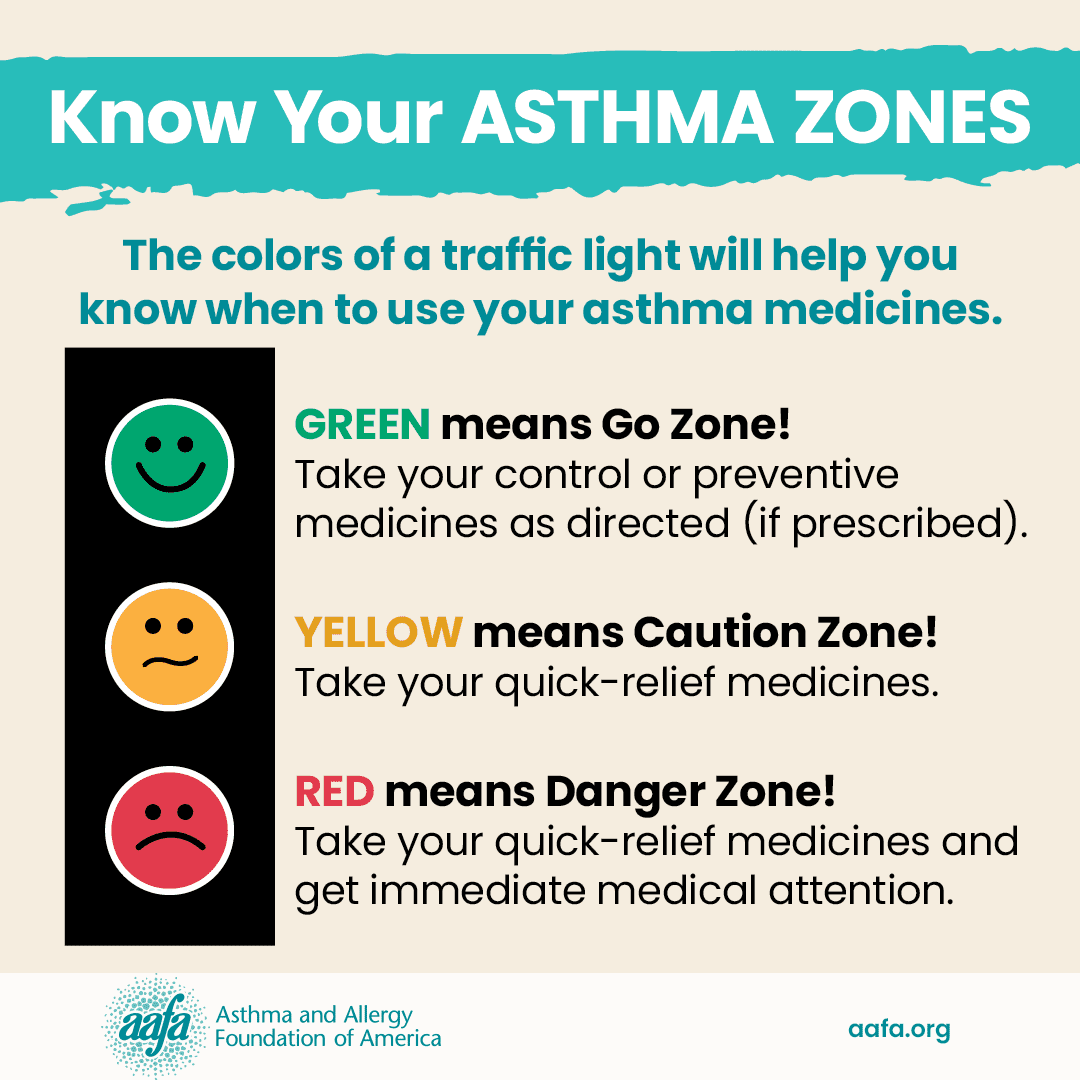Asthma
Oral Corticosteroids
Closed
Short-term Risks of OCS
Fluid retention
High blood pressure
Weight gain
Moodiness
Problems with memory and behavior
Long-term Risks of OCS
Cataracts
Infections
Osteoporosis (brittle bones)
High blood sugar levels in patients with diabetes
Thin skin
Bruising
Slower healing process for wounds

A 2018 Asthma and Allergy Foundation of America (AAFA) survey of 519 patients with asthma found that nearly 85 percent used at least one course of OCS in the previous 12 months and 64 percent had done so two or more times. Patients who take two or more courses of OCS in a 12-month span may have severe or poorly controlled asthma and should speak with a qualified asthma specialist.
How Do You Know If Your Asthma Is Not Under Control?
If your asthma is well-controlled, you have a better chance of recovering faster or avoiding complications from an illness. Keep the Rules of Two® in mind:
- Do you take your quick-relief inhaler more than two times a week?
- Do you awaken at night with asthma more than two times a month?
- Do you refill your quick-relief inhaler more than two times a year?
- Do you measure your peak flow at less than two times 10 (20%) from baseline with asthma symptoms?
If any of these apply to you, talk with your health care provider.
Also, if you are taking oral corticosteroids (such as prednisone) two or more times per year, ask your health care provider about other options.

While OCS can be an important tool in managing asthma in certain cases, their use should always be carefully monitored by an asthma specialist or a primary care provider with expertise in asthma.
Your health care provider may run more tests or have you try other medicines. Biologics are an innovative type of treatment used to treat severe, uncontrolled asthma that may reduce the number of asthma attacks you have and reduce the need for OCS. Biologic treatments are given as shots or infusions every few weeks. The treatment targets and blocks a cell or protein in your body that leads to airway inflammation.
AAFA Joins Patient Advocates, Medical Professionals and Industry Stakeholders to Curb Oral Corticosteroid Overexposure in Asthma Treatment
With chronic use of OCS comes the potential for serious health risks. AAFA partners with patient advocacy groups, medical professional societies and industry partners to raise awareness of oral corticosteroid (OCS) overexposure in moderate-to-severe asthma treatment. Read the full statement.
Medical Review September 2018.













